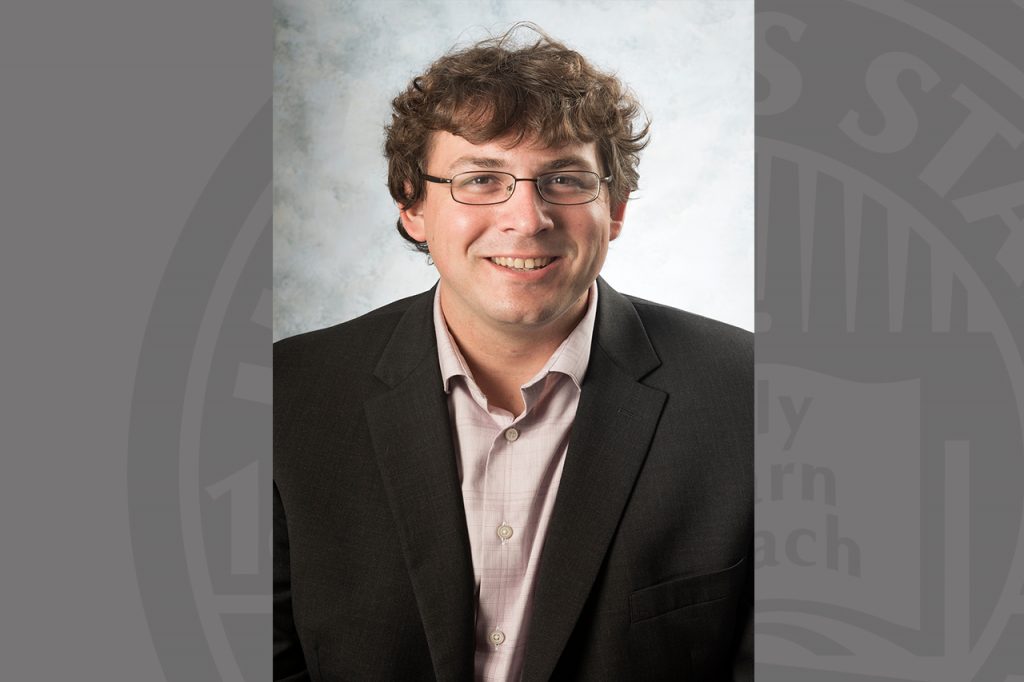A white dress. Flowers. Cake. Most people expect an engagement to end with a wedding and a traditional start to a “happily-ever-after” situation. But what about the times that it ends with returning the ring, selling the dress, and a newfound sense of self?
With his colleagues, Dr. Luke Russell, assistant professor in the Department of Family and Consumer Sciences, wanted to find out what would make someone call off an engagement. “There is inertia present in relationships, a pressure to keep the relationship moving forward. People might slide forward in these relationships without actively choosing to progress.”
“We wanted to find out, how do you stop that momentum? What makes people realize that it’s not a good fit? And from a bigger picture, how do you help people succeed regardless of their relationship situation? How does that lead to healthy, happy fulfilling relationships, and how do we avoid unhealthy ones?”
Russell and his co-authors decided to seek out people that had gotten to the engagement stage and then decided to call off the wedding. His co-authors, one with previous experience as a therapist and all involved in family life education, had a network to draw from. Other research participants were found on Facebook Marketplace selling their wedding dresses or engagement rings or participating in various other social media message boards.
All participants in the research were the partners that had made the decision to call off the engagement, and at the time, all participants were in heterosexual relationships. Russell noted that he thought it was possible that gay and lesbian couples might feel more pressure to follow through with a wedding, as LGBTQ communities can be tight-knit and the ripple effects of calling it off might feel greater. Russell and his team talked to more women than men. He mentioned that this was not a representative sample, but he and his co-authors hypothesized that this may be because men tended to do more visualization and processing prior to the ask.
In addition, most of the research participants were in their mid-20s to late 30s. Russell thought the data would look different with an older sample, as age and any prior relationship experiences would play a role. Women also tend to get nervous about biology and how long they might be able to have children.
Russell and his colleagues found that sometimes going through the wedding planning process made the commitment seem more “real” to people. Participants said they would start to envision not just the wedding, but the days after, as well. “For some, seeing themselves in a wedding dress or picking out patterns for the registry helped them to visualize the future and what they are signing up for in the days ahead.”
It is also common for conflicts to arise when couples start talking about where the wedding might take place, as it can shed light on some (potentially incompatible) religious beliefs. Other conflicts can also arise during the planning process that some can perceive as insurmountable. “At their core, rituals like weddings calm our nerves and help us to mark important changes, and can be indicators of what matters to us. They can work as a filter to show us what our values are. And, the pressure around a ceremony can be a final hurdle for some. Life can get a lot tougher than throwing a big party, and planning a wedding can sometimes put things into perspective,” said Russell.
Many times, the participants’ partners were surprised and did not see the end of the engagement coming. Some partners even became violent, which reinforced the decision of the other partner to leave and be confident in their decision. The path to leaving a relationship, however, was not always a linear or quick one. Often a decision to forestall the wedding gave time for individuals to assess what was, and what was not working in their relationships.
“We did see some relationship cycling, where people would break off the engagement, and then get back together. It wasn’t always a clean break,” explained Russell. “This isn’t necessarily a bad thing. A postponement, or an action like returning the ring, can be very symbolic and a good way to get some time and clarity. It slows the inertia of the relationship, and then if they revisit the possibility, the commitment to the relationship could be really strong.”
“Think about the things that you like about each other, but also the things that drive you nuts. Can you live with the things that drive you crazy? Sixty-eight percent of marriage issues are perpetual.”
Russell said that the support role of family members and social networks were an integral part in how smooth the transition was for the partners calling it off. “Many wonder, ‘what will my family and friends say?’ When they receive positive responses, that makes a big difference and makes it easier to transition to the next stage. For example, having a bridesmaid offer to help make cancellation phone calls to vendors or a venue can really bring relief to the person cancelling the wedding.”
Some of the research participants had found new relationships with new partners. The researchers did not find much regret present. “There are ways for people to move through this and be just fine,” he said.
The research was published in December 2020 in the Journal of Social and Personal Relationships, with all data collected prior to the impact of the coronavirus (COVID-19) pandemic. Russell noted that it would be interesting to repeat the study, taking COVID-19 into consideration. “Coronavirus has been a pressure cooker of time and togetherness for people. The quarantine situation may have urged some people to rush to commit so that they could see each other, but many others are ending their relationships.”
Russell teaches in Human Development and Family Science, and his research has had practical applications in his classes. “In marriage and family classes, we talk a lot about how people get into and out of relationships. I also teach a course on helping skills, and have found that when people are facing challenging times, they think they are the only ones that have ever faced an obstacle like this. Research like this helps normalize these situations.”
Interested in learning more about Russell’s research, or what a degree in Human Development and Family Science might be like? Visit fcs.IllinoisState.edu to learn more.


